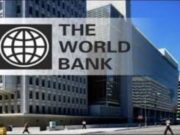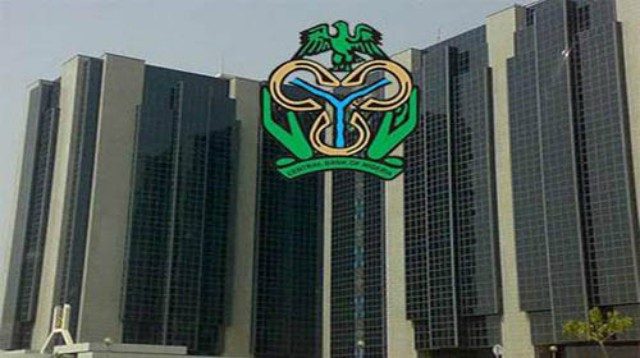Nigeria’s banking sector has always stood at the center of the nation’s economic hopes. Yet, instead of fueling growth and wealth creation, the sector finds itself trapped in a cycle of fragility, weighed down by policies that appear more punitive than progressive.
At the heart of this malaise is the Central Bank of Nigeria’s (CBN) reliance on blunt instruments such as the Cash Reserve Requirement (CRR), a policy tool that has tied down bank capital in idle vaults rather than channeling it into the real sector economy.
The logic of the CBN is clear enough, which is to mop up liquidity to curb inflation. But the consequences are undeniable. When banks are compelled to warehouse huge reserves that could otherwise be deployed into productive ventures, the real sector, especially small and medium-scale enterprises (SMEs), suffers. These are the very businesses that create jobs, drive innovation, and power inclusive growth. Instead, they are starved of credit because funds remain sterilized at the apex bank in the name of macroeconomic stability.
In times of economic turbulence, inflation control is often the rallying cry of central bankers. In Nigeria, that battle has become an almost singular obsession of the CBN. The preferred weapon? The blunt tightening of monetary policy, raising interest rates and locking away massive portions of banks’ deposits under the CRR. While this might look decisive on paper, in practice it creates collateral damage, leaving banks unable to finance the very sectors that drive jobs, innovation, and long-term growth, most critically, SMEs and entrepreneurs.
The reality is simple, all in the name of fighting inflation, it should not mean strangling credit creation. There are smarter, targeted tools available, and many countries have deployed them with success. Around the world, regulators employ a mix of interest rate adjustments, open market operations, and forward guidance to curb inflation without choking off credit to the real economy. Nigeria must learn from these models and adapt them to its peculiar circumstances.
To tame inflation without choking growth, the CBN could pivot to more sophisticated instruments. Selective credit windows can guarantee lending to SMEs, agriculture, and manufacturing, even under tighter conditions. Differentiated reserve requirements can reward banks’ lending to productive sectors while penalizing speculative lending. Granular open market operations can absorb excess liquidity without suffocating the economy. Macroprudential tools can target bubbles in consumer lending or real estate speculation instead of blanket credit strangulation. And crucially, there must be fiscal-monetary coordination, because inflation driven by food insecurity, energy costs, and government overspending cannot be solved by monetary tightening alone.
Yet Nigeria’s banking fragility cannot be laid at the feet of monetary policy alone. The system’s weaknesses are also rooted in weak governance structures, insider abuses, poor risk management, and an idle treasury management culture. Corporate governance in many banks is treated as a box-ticking exercise rather than a framework for accountability. Boards often lack independence, while regulatory oversight is reactive instead of preventive. This creates fertile ground for insider abuse as directors and their cronies secure loans and contracts without due process or repayment discipline.
The evidence is stark. For eight of the country’s largest Deposit Money Banks (DMBs), total non-performing loans (NPLs) doubled in just one year from about ₦1.29 trillion in 2023 to ₦2.59 trillion in 2024. Their average NPL ratio climbed from 3.82 percent in 2023 to 4.99 percent in 2024. Across the industry, the CBN reported an NPL ratio of around 4.5 percent by the end of 2024, only for it to spike to 5.62 percent by April 2025, above the regulatory ceiling of 5 percent. Much of this surge reflects reclassified loans after stricter risk assessments, but it underlines a disturbing trend, showing that fragility is deepening, not abating.
For instance, a customer of the defunct Heritage Bank that was recently liquidated by President Bola Tinubu’s administration, who happened to be the publisher of one of the daily newspapers, was heavily indebted to the bank to the tune of several billions. Following his death during the COVID era, the newspaper outfit struggled to meet its obligations until the eventual shutdown of the bank. Among many cases, this episode shows how a single borrower’s collapse can trigger wider institutional vulnerabilities, worsening the sector’s fragility.
If just one of these economic heavyweights were to collapse, the domino effect could topple multiple banks at once. This is not the hallmark of a robust financial system; it is the mark of fragility. Equally troubling is the poor risk management culture. Credit assessments are often weak, operational risks underestimated, and stress testing neglected until crisis hits. To this is added an idle treasury management culture where banks prefer to park funds in low-yield assets or leave them sterilized under regulatory compulsion instead of channeling them into productive ventures. In a country battling unemployment, weak industrial growth, and inflation, idle treasuries are nothing short of economic sabotage.
One of the starkest contradictions in Nigeria’s economic management lies in the government’s heavy borrowing from the very banking system that the CBN seeks to discipline in the name of fighting inflation. On the one hand, the CBN raises CRR levels and applies other restrictive measures, effectively locking away banking capital to limit credit expansion. On the other, the federal government consistently turns to the same banks to finance its deficit through bonds, Treasury bills, and the now-controversial Ways & Means facility.
The scale of this borrowing is staggering. A Premium Times investigation revealed that CBN advances to the federal government surged by about 2,900 percent in just seven years, peaking at ₦23.8 trillion, spanning Ways & Means and other credit lines. In one stretch, the government borrowed an additional ₦3.8 trillion in only six months through the Ways & Means window. Although the CBN has recently reduced such lending by 59 percent in a bid to enforce monetary discipline, the damage to credibility is already done.
Legal borrowing caps, which tie government advances to revenue, have been repeatedly breached with little consequence. To ease pressure, the government has resorted to securitizing parts of this debt, most notably converting the ₦23.7 trillion Ways & Means facility into longer-term instruments. While this may buy time, it does not erase the contradiction that the CBN sterilizes liquidity with one hand, only for the federal government to pump it back into circulation with the other.
This practice has two damaging consequences. First, it inflates the money supply by redirecting liquidity back into circulation through government borrowing, negating the CBN’s inflation-control measures. Second, it crowds out private sector borrowers, especially SMEs, who are already starved of affordable credit. The result is a distorted system where banks prefer risk-free lending to the government over financing the real economy.
Such policy misalignment undermines trust in the financial system. Stakeholders see a regulator trying to sterilize liquidity while the government injects it back, a tug-of-war that signals confusion rather than coherence. The broader implication is that Nigeria’s inflationary pressures are not merely monetary but structural, requiring coordination between fiscal and monetary authorities. Without such alignment, the fight against inflation becomes self-defeating, eroding confidence in the apex bank’s credibility and deepening economic fragility.
The way forward is not to keep banks in chains but to align policy with growth. Free up productive capital. Enforce strict sanctions on insider abusers and delinquent big borrowers. Strengthen governance and risk management frameworks. And above all, embrace smarter, more dynamic monetary tools that fight inflation without suffocating the economy. Nigeria cannot grow if its banking system remains fragile. And the banking system cannot thrive if the very policies meant to strengthen it are the ones cutting off its oxygen supply.
- Blaise, a journalist and PR professional writes from Lagos, can be reached via: blaise.udunze@gmail.com









































































